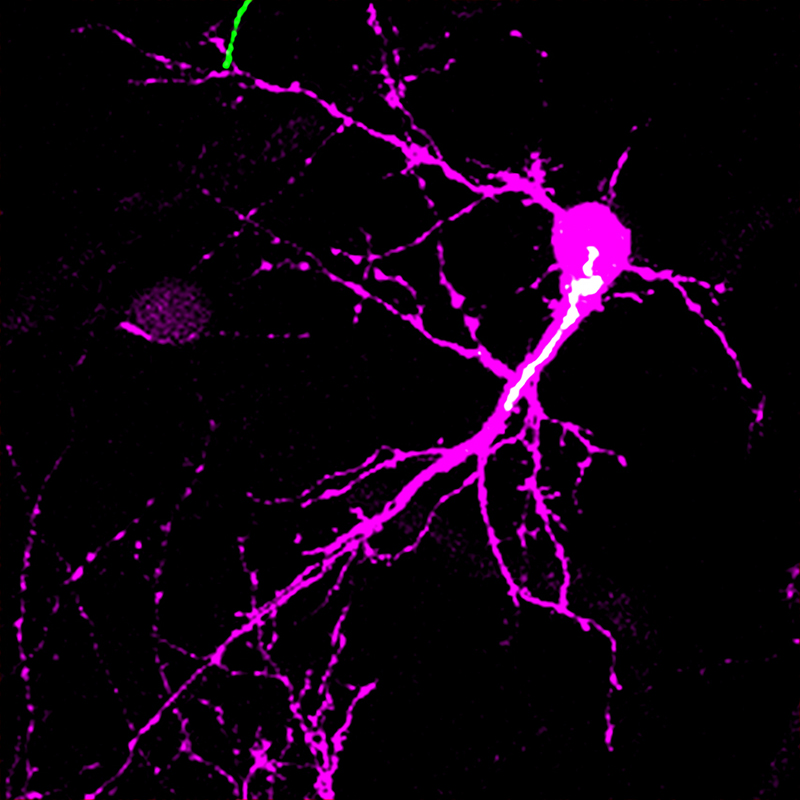Uncovering how the Golgi apparatus impacts early postnatal neuron development
Press release
Golgi polarity shift instructs dendritic refinement in the neonatal cortex by mediating NMDA receptor signaling
Naoki Nakagawa, Takuji Iwasato
Cell Reports 2023 Jul 28 DOI:10.1016/j.celrep.2023.112843
![]() Press release (In Japanese only)
Press release (In Japanese only)
EurekAlert! link about this artcle
Neurons are the cells that constitute neural circuits and use chemicals and electricity to receive and send messages that allow the body to do everything, including thinking, sensing, moving, and more. Neurons have a long fiber called an axon that sends information to the subsequent neurons. Information from axons is received by branch-like structures that fan out from the cell body, called dendrites.
Dendritic refinement is an important part of early postnatal brain development during which dendrites are tailored to make specific connections with appropriate axons. In a recently published paper, researchers present evidence showing how a mechanism within the neurons of a rodent involving the Golgi apparatus initiates dendritic refinement with the help of the neuronal activity received by a receptor of a neurotransmitter called N-methyl-D-aspartate-type glutamate receptor (NMDAR).
The paper was published in Cell Reports on July 28. Read more>

Figure: The image shows a spiny stellate neuron (magenta) and its Golgi apparatus (white) in the mouse barrel cortex at postnatal day 5. The study found that the Golgi apparatus shows a biased distribution in one side of the neuron only during the postnatal critical period of circuit reorganization. This lateral Golgi polarity instructs the direction in which the neuron expands its dendrites for establishing precise neuronal circuit.















